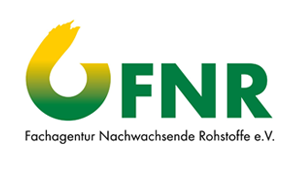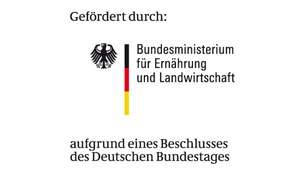Project
Guerbet-Butanol

Production of butanol from bioethanol by heterogeneous catalysis
Bioethanol is a potential platform chemical and can be catalytically converted to important chemicals, e.g. ethylene, 1-3-butadien, n-butanol. Our research focus on the production of n-butanol by the guerbet reaction.
Background and Objective
Ethanol, known as alcohol, is produced in the world largest and most important fermentation process from carbohydrates (sugar, starch). In the last 8 years the world Ethanol production increased from 24 to 85 million t/a because of its usage as fuel additive. Furthermore it is a potential future platform chemical and can be converted in the presence of heterogeneous catalysts to a variety of value added chemicals (ethylene, ethyl acetate, 1,3-butadiene). One of the most interesting chemicals is n-butanol which can be directly produced from ethanol by the Guerbet reaction. This reaction requires high temperatures (200-450°C) and can take place in the liquid or gas phase. n-Butanol is one of the most important commodities worldwide. The majority of the 3 million t/a is produced via the oxo process from propylene and n-butanol is used mainly directly or indirectly as a solvent. Dwindling fossil resources and the shortage of propylene because of excessive shale gas fracking in the USA have attracted interest in alternative processes for the production of n-butanol. In the ongoing project a new process for the n-butanol production should be developed based on the Guerbet reaction. The complexity of this reaction and the few publications available create a considerably great need for research to develop a new process.
Approach
The reaction systems used in this project are a batch and a gas phase reactor which is equipped with an online-GC to study the Guerbet reaction of ethanol to butanol in the liquid and gas phase. At first suitable reaction conditions for the reaction have to be determined (pressure, temperature). In the next step different catalytic systems should be screened with respect to ethanol conversion and butanol selectivity. Additionally the optimization of the catalyst preparation, mechanistical investigations and long-term stability with a set of chosen catalyst should be conducted. Furthermore to this work methods for the catalyst characterization should be developed to identify possible catalyst structure-effect relationships.
Results
With magnesium oxide-based catalysts high selecivity for butanol could be achieved. A continuous lab-scale reactor was testet succesfully. In more detail the following results could be achieved:
- For the identification and quatification of all process relevant substances, offline and online analytics have been established. For the identification of all substances a GC-MS was used, for the quantification GC-TCD, GC-FID and HPLC-DAD was used.
- For continuous and batch experiments, two reactors each were put into operation and methods and protocols (standard reaction conditions) were established. A new sampling system for the batch reactor and new protocols for online analytics were developed.
- A broader range of process parameters, temperatures up to 350 °C and pressures higher than 100 bar, were established.
- A variety of catalytic systems were synthesized and tested, e.g. oxidic basic materials, various supported mono- and bimetallic catalysts. High selectivities of over 70 % could be achieved with 1%Pd/MgO(400), 9%Ni/1%Cu/MgO(400), 9%Pt/1%Cu/MgO(400), 0.5%Pd/0,5%Ni/MgO(400) and 0.5%Pd/0.5%Co/MgO(400).
- All catalysts have been characterized. Although results for acidic and basic properties were put into relation with their catalytic results, no structure-effect-relationship could be deduced. Further research needs to be done in that regard.
- Establishement of the IW-method for catalyst prepatation with loads up to 100 g. Shapening of the catalyst of particles over 250 µm to protect the reactors and the analytics from damage.
- A good long-term-stability of the catalysts was observed.
Thünen-Contact

Prof Dr. rer. nat. habil. Ulf Prüße
Involved external Thünen-Partners
-
Südzucker AG
(Mannheim, Deutschland)
Funding Body
-
Südzucker AG
(national, privat)
Duration
2.2015 - 7.2018
More Information
Project funding number: 22014614
Funding program: FNR
Project status:
finished

![[Translate to English:] [Translate to English:]](/media/_processed_/3/6/csm_Hintergrund-Ausschnitt1_9daaef6b89.jpeg)
![[Translate to English:] [Translate to English:]](/media/_processed_/3/6/csm_Hintergrund-Ausschnitt1_0bd7111163.jpeg)







